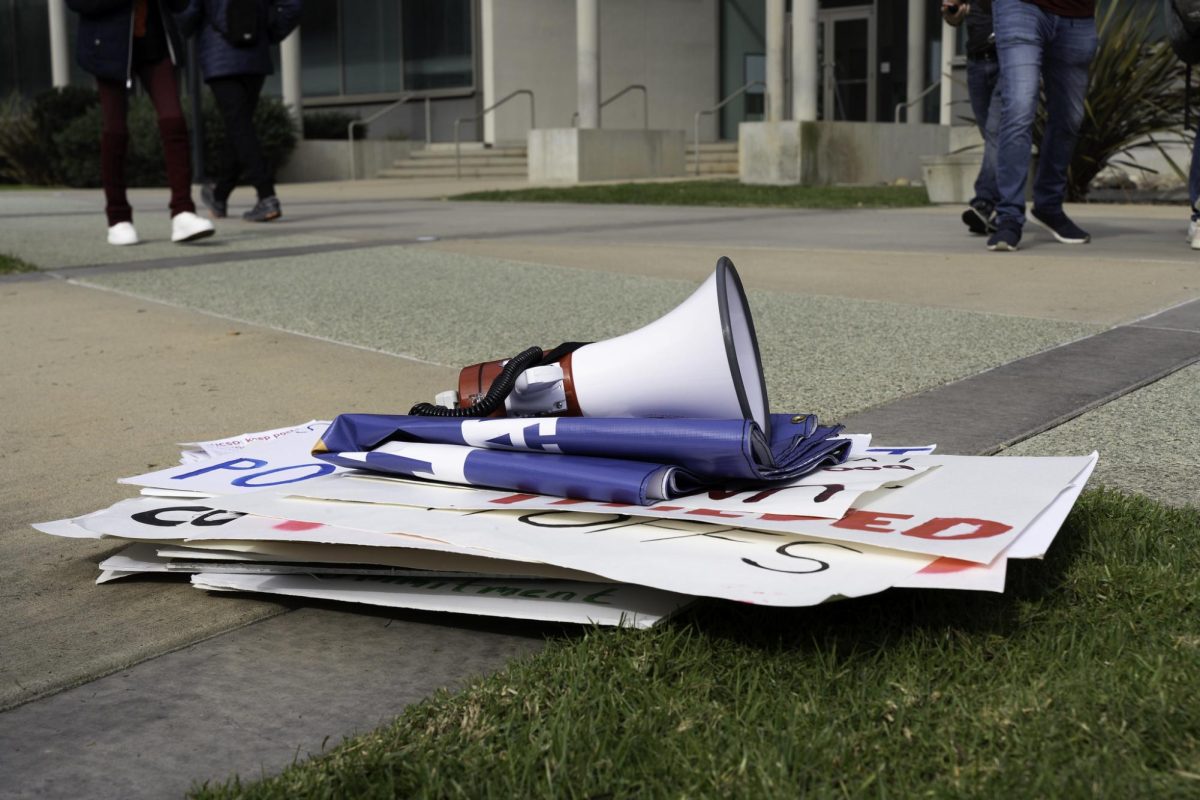
Thomas Murphy
On April 15, the UC San Diego Academic Senate passed two resolutions in response to recent visa revocations and federal interference in university affairs across the nation. A third is on the docket to be discussed in an upcoming UCSD Academic Senate meeting on April 29.
The UCSD Academic Senate is part of the larger University of California governance structure, composed primarily of university faculty as well as some staff and two elected student representatives. Among other duties, it can pass resolutions that serve as formal expressions of faculty consensus on issues it deems important. These resolutions can also inform and prompt administrative action.
The first resolution, titled “Resolution to support UC San Diego students, faculty and staff who have had their visas or green cards revoked,” expresses concern for the well-being and safety of international students. It urges UC leadership to “pursue legal action in federal court to challenge the termination of international student and scholar visas or green cards that occur arbitrarily and/or without due process.”
It also proposes that the UCSD administration work with the Senate to instate policies that ensure international students can fund legal services, continue receiving relevant fellowships, and complete their education without interruption.
The second resolution, “Resolution to refrain from sharing the personal information of UC San Diego students, faculty and staff unless compelled by warrant or subpoena,” focuses on data privacy and digital surveillance.
“The Senate call upon the Chancellor to make a public written statement that UC San Diego will refuse to comply with any demand from the federal government, that is not a federal warrant or subpoena, to provide student, faculty or staff identifying information or physical location, that is motivated by their visa or immigration status or on-campus activities,” the resolution read.
A third resolution written by a group of faculty activists, titled “Resolution to Defend UC San Diego’s Commitment to Free Speech and Academic Freedom,” will be discussed and voted on at the upcoming meeting. This resolution calls on faculty to support academic freedom and urges university leadership to publicly reaffirm UCSD’s commitment to open discourse and faculty autonomy.
It asserts the importance of the right of faculty to pursue work across a broad range of disciplines — including research in the humanities and social sciences, empirical scientific investigation, and creative production — without interference from political or administrative authorities. The resolution also urges the University of California to take legal action, recommending it pursues lawsuits or other legal actions to oppose federal measures that threaten academic freedom, free expression, and the University’s independence.
The activist faculty group collected signatures on several petitions in pursuit of passing these three resolutions; the Senate’s bylaws state that it must hold a special meeting if it receives any petition with over 25 signatures.
Psychology professor and Academic Senate member Adam Aron commented on the importance of these resolutions.
“Part of what animates these resolutions is to be proactive and stand up and articulate your principles and not cower,” Aron said. “The fact that we went through this whole process means that all departments learn about it, hundreds of faculty will see these resolutions — it foregrounds the issue in everyone’s minds and the media. It increases a level of pressure and moral intent upon the administration.”
UCSD’s Academic Senate is one chapter of the UC Academic Senate, which is a branch of the UC governance system, alongside the Board of Regents and the administration. The UC Senate oversees “educational function” and advises the university administration and UC Regents on matters affecting their teachers, research, and governance. There is an Academic Senate branch at each individual UC school, made up of the faculty from its campuses.
Resolutions passed by the Academic Senate do not bind the campus or UC-wide administration to any particular action or response. Aron believes they can still hold significant sway.
“You could imagine many different UC Academic Senates doing things like this together, it adds up together to a concerted call upon the entire [UC] administration,” he said. “It creates a moral frame, it foregrounds the issues, keeps people’s minds focused on the things we want to see. What comes with that remains to be seen.”
The Guardian has reached out to University Communications for comment. We will continue to monitor this story as it develops.